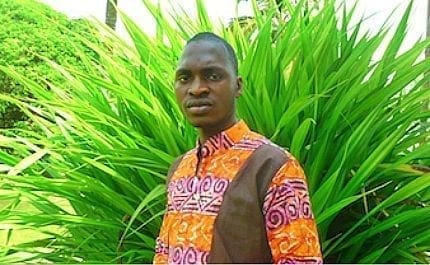As Liberia makes gradual progress toward the eradication of Ebola, there is another emerging challenge for all Liberians and for people around the world.
Something striking and humiliating that can be called “Ebola discrimination” is causing post-traumatic stress, division and animosity among Liberians and many identified as the African Diaspora.
The World Health Organization (WHO), through its contributions and partnerships with local and international supporters, has been aiding West Africa in order to vigorously combat the Ebola epidemic that has claimed nearly 5,000 lives in West African countries such as Guinea, Liberia and Sierra Leone, all of which have been epicenters of Ebola since early March.
A few weeks ago, Liberia was recognized as making progress in its fight against Ebola.
Our republic, with the assistance of a broad international community of support, has been creating more awareness for its citizens to avoid complacency among Liberians.
In addition to tangible support, Liberians have finally taken a lead in many areas of the republic in successfully maintaining an educational campaign about the causes of infection and ways to prevent the spread of the dreaded Ebola virus.
Ebola is a scourge, but the reach of the effects of the virus may be worse.
In the wake of the illness is a humiliation suffered by those who have survived Ebola.
Also, there is a stigma associated with being from affected West African nations.
With a sad heart and with concern for human dignity, I write to point out the ongoing Ebola discrimination situation in our world, especially in Liberia. I am Liberian, and Liberia is all I know for sure.
As I reflect upon the outbreak this year, Ebola discrimination started from the initial discovery of Ebola in Liberia and grew after the early progress of Liberians in their fight against Ebola.
On a daily basis, people are being marginalized because of the present diabolic pestilence in our world.
Most of those who have survived Ebola and those who have been suspected of having contact with Ebola suffer stigmatization and discrimination at the unmerciful hands of people who often seem to lack sufficient knowledge of how Ebola spreads from one person to another.
In our Liberian context, Ebola survivors are finding it difficult to rejoin their relatives, friends and loved ones in their rightful communities.
Some are homeless, including children who lost their parents and guardians to Ebola.
Tragically, some people are refusing to accommodate their relatives who are victimized by Ebola with the fear of contracting the virus too.
As a result, Ebola survivors are secretly leaving their communities or environments because of the stigma. They are consigned to the streets in search of food, clothing and shelter.
The reality of discrimination against those who have borne the brunt of the virus is a call to stop the practice of Ebola discrimination against one another in our world.
This crucial moment also pricks my heart upon hearing of the discrimination of Diaspora Africans living abroad.
Specifically, Liberians are being greatly burdened as they undergo sanctions on movements and receive harsh treatments at various international airports during this global health crisis.
Some of them have been constrained into compulsory quarantine for days before boarding the planes to other countries.
The sad thing is that the science of Ebola, as promoted by the WHO, does not appear to have an effect upon the practices of responding to travelers from West African nations where Ebola is prevalent.
Ebola discrimination must stop. It is painful. It makes people vulnerable in the society and likely exposes them to dangers.
Psychologically, Ebola discrimination could affect the behavioral patterns of its victims.
It isolates people from the society and indirectly denies them the enjoyment of human rights.
It even compromises health conditions and leads people to possible suicide because of stigmatization.
With the humiliation imposed upon Liberians and other Africans across the globe as the result of the Ebola situation, I am appealing to our brothers and sisters to stop the practice of discrimination.
However, this can fully materialize only if we are knowledgeable about the transmission of Ebola and the preventive measures to protect ourselves in every possible contact.
In spite of our diverse nationalities, with unison we can resist the spread of Ebola and its discrimination bearing upon our people.
The songwriter says, “You are my brothers, you are my sisters, so take me by the hand, and together we will walk until we stand.” Yes, we can.
Alluding to these motivational and insightful words should demand that we warmly welcome Ebola survivors in our society and help stop Ebola discrimination across our globe.
As a Liberian, I am optimistic that if we unite under an umbrella as one family during this time of global health crisis, Ebola discrimination will have no endurance.
We will have the tenacious courage to reintegrate Ebola survivors and afford them the opportunity to socialize and move freely in their respective communities, thus treating them with dignity and respect.
By so doing, together we all shall stand to resist Ebola and restore unity among ourselves.
 Fayiah Tamba is a senior student at Liberia Baptist Theological Seminary in Paynesville City, a region of Monrovia, Liberia. He is from Foyah in Lofa County, Liberia.
Fayiah Tamba is a senior student at Liberia Baptist Theological Seminary in Paynesville City, a region of Monrovia, Liberia. He is from Foyah in Lofa County, Liberia.
Editor’s note: For a photo news story of Ebola’s impact on Liberia, click here. For local video footage from Liberia, click here.

